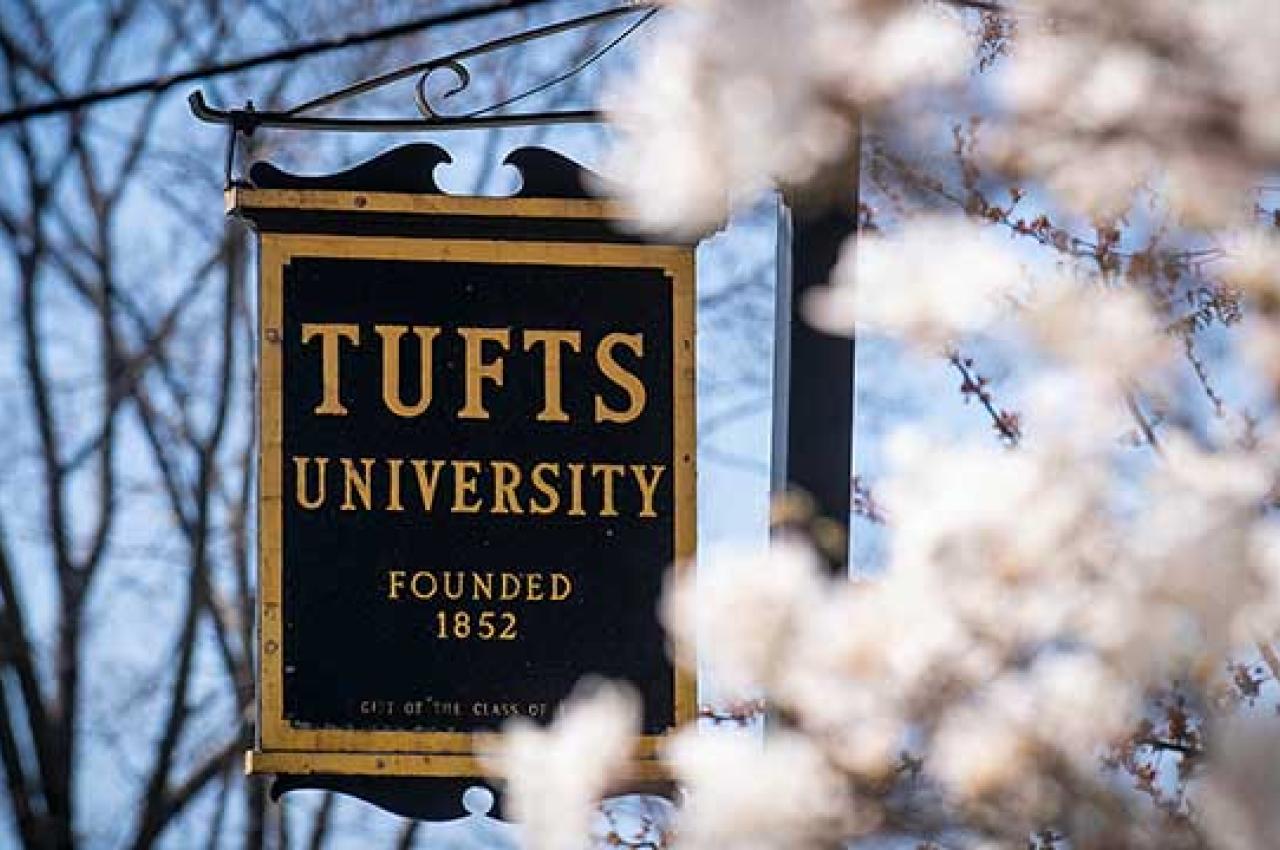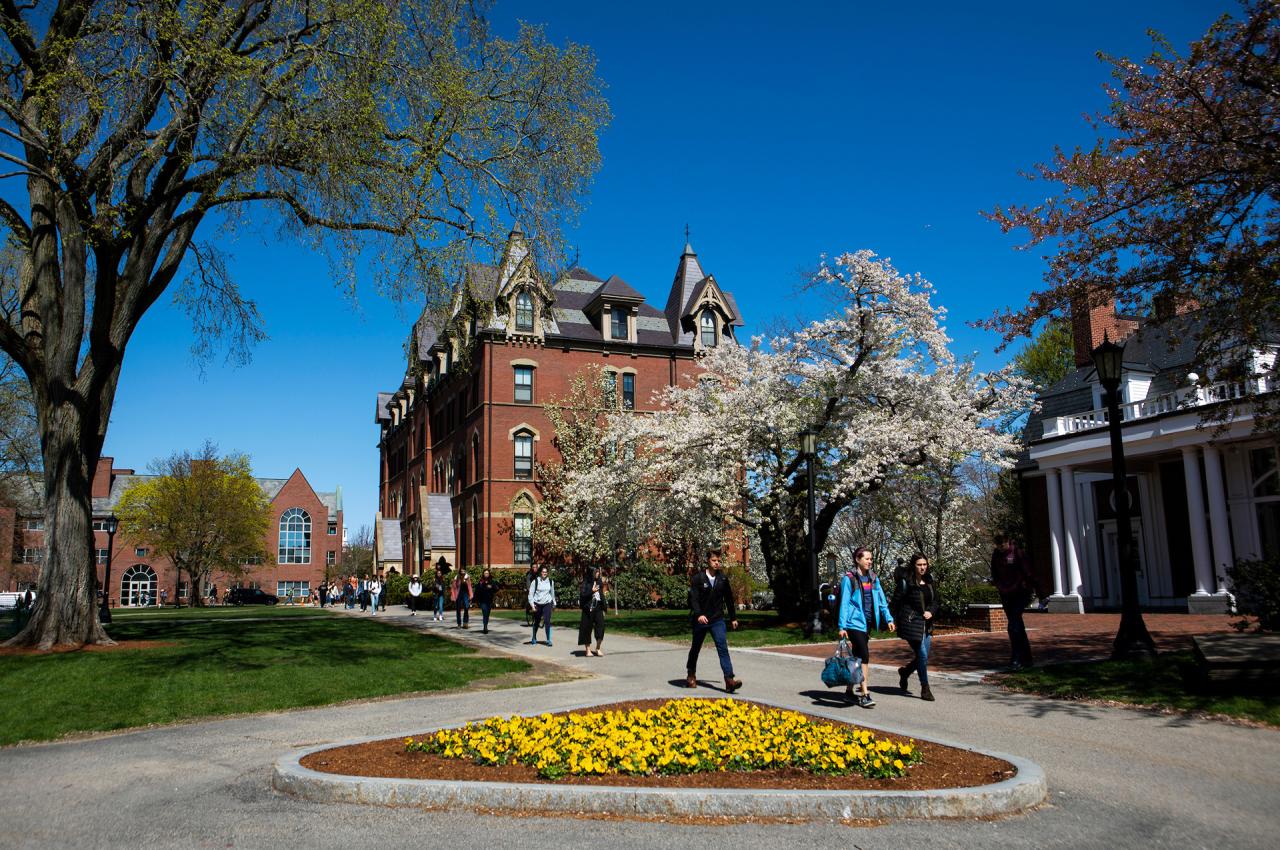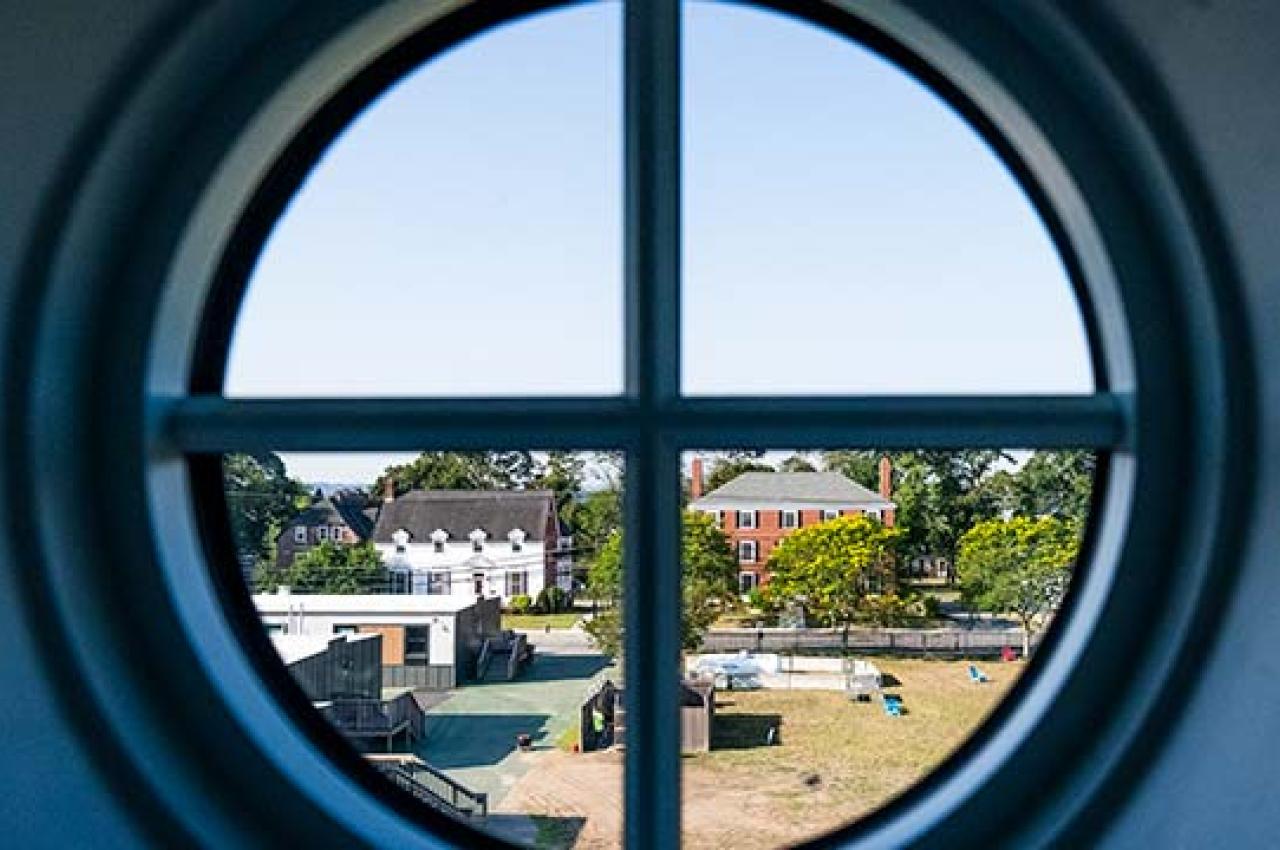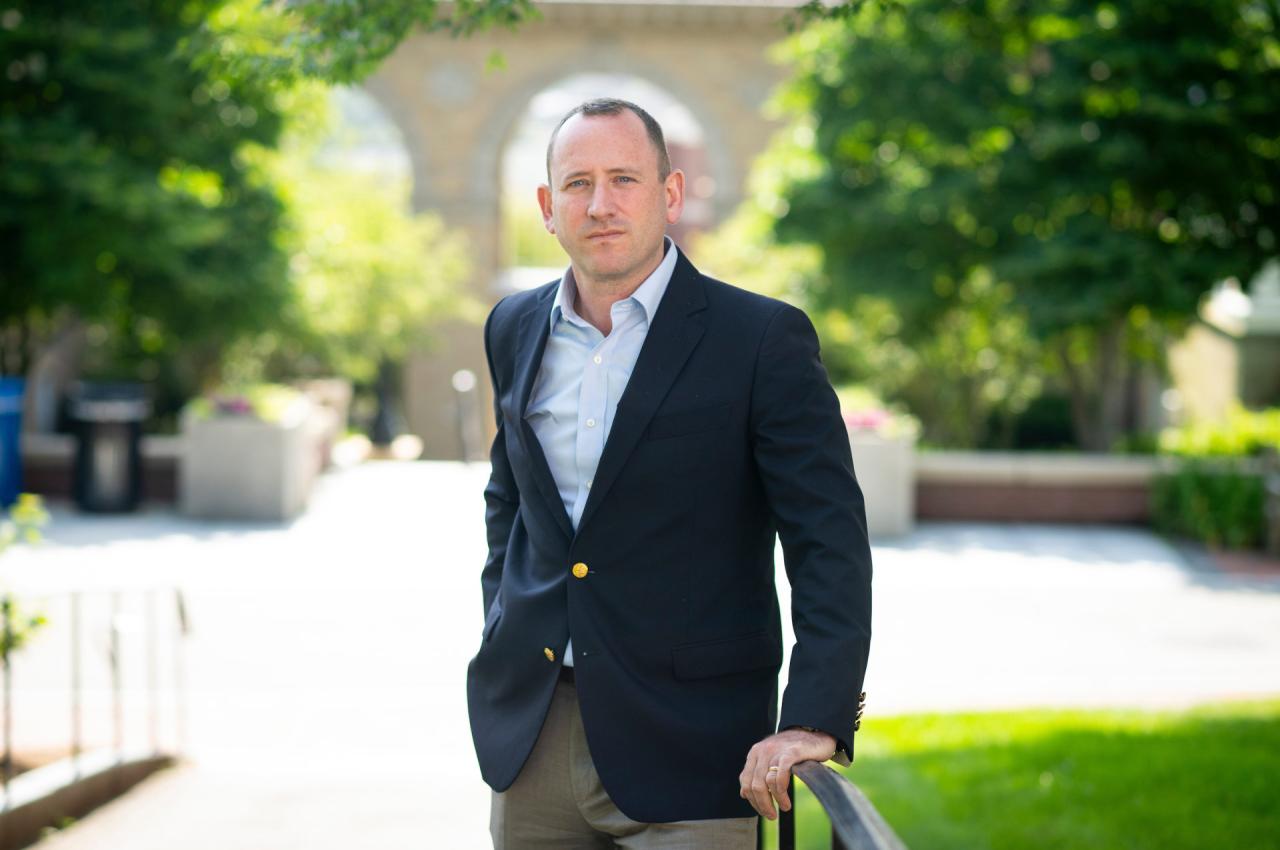Tufts Affirms Commitment to Institutional Pluralism
To bolster free speech on campus, Tufts has adopted a statement on institutional pluralism.
As part of the university’s commitment to freedom of expression, the university’s leadership will refrain from making official statements on current issues and events that don’t have a direct relationship to the university’s mission. The newly refined approach spells out that such institutional restraint does not imply neutrality or indifference. Rather, it is meant to encourage Tufts community members to speak in their own voices.
The goal is to “support, promote, and safeguard free speech, open inquiry, and academic freedom”—in other words, a plurality of viewpoints—says Colleen Ryan, the university’s vice provost for faculty, who co-chaired the working group that formulated the new approach.
The working group, created in the fall of 2024, engaged with at least 800 faculty, students, and staff through listening sessions and other formats while developing its report.
The university’s trustees voted in August to affirm the core principles articulated in the working group’s report.
Tufts Now spoke with Ryan and Ian Johnstone, a professor of international law at The Fletcher School with whom she co-chaired the working group, to learn more.
What is this new statement, in simple terms?
Ryan: It is a concise version of our committee's recommendations to the president and the provost. It recommends that upper levels of leadership, because of the power implicitly associated with their voices, refrain from making statements on an array of issues or events that do not pertain directly to the teaching, research, and service missions of the university.
The second part of the statement continues Tufts’ longstanding commitment to free speech, open inquiry, and academic freedom. It implies neither neutrality nor indifference on the part of Tufts leadership, faculty, staff, or students. Rather, it intends to encourage Tufts community members to speak in their own voices or in groups.
Johnstone: The important thing to understand is it's about restraint with respect to issues that are unrelated to the core mission of the university. So, conversely, in the report, we encourage the leadership to speak on issues that do have an impact on the research and teaching mission of the university.
Why did you recommend refraining from issuing statements about political or social matters that aren't directly related to the university’s mission?
Johnstone: The first and most important reason is that if university leaders speak on those issues, it could have a chilling effect on the rest of the Tufts community speaking. We're concerned that faculty, staff, and students who hold a contrary opinion to what is being expressed by the university leaders would feel discouraged from expressing their own views.
Another issue is selectivity. There's a real danger that by speaking on some issues and remaining silent on others, you're telling some people that their concerns are less worthy of attention by the university leadership than others.
A third concern is that university leaders don't have the expertise or time to be speaking on every political and social issue, and they can’t divine whether there's a consensus around that issue. If they're purporting to speak on behalf of the university, it may send a signal that there's a consensus in the university. And, on most issues, there isn't a consensus; there are multiple points of view.
All those points of view should be expressed by the students and faculty and staff who have expertise. The statement is trying to encourage speech, and to encourage open inquiry and dialogue and deliberation among the community, as opposed to taking that power away from individuals and purporting to speak on behalf of them all.
Why didn’t you recommend institutional neutrality?
Johnstone: There was confusion about what neutrality meant. Some people were interpreting it to mean that somehow the university and everybody in it must be completely oblivious to anything that's going on in the world. That's not what this is about, so we felt we needed to avoid that term.
We think pluralism better captures our goal, which is to encourage a plurality of viewpoints and to make sure that everybody feels comfortable expressing their points of view. It is to reinforce the idea of academic freedom and freedom of speech and open inquiry.
How is the approach you recommend different from a policy of institutional neutrality?
Johnstone: The term institutional neutrality is rooted in the Kalven Report [a University of Chicago report from 1967], which is about university leaders making statements, but also seems to be about actions the university may take.
Our charge was about making statements. It wasn't about all the things universities may or may not do, for example, decisions around investment and divestment or what kinds of research to fund and where that funding should come from.
So, our recommendations are only about statements, not about actions. The term institutional neutrality is sometimes understood to cover both.
What will this look like in practice?
Johnstone: The expectation is that leaders will show some restraint and refrain from making official statements on political and social issues that aren’t related to the core mission. The leadership will have to exercise judgment and use their discretion. We are not saying, “Don't speak ever”; we're saying, “Don't speak on unrelated matters.”
If an issue does affect the core mission, then the leadership should feel free to speak. It's up to them to decide when and in what ways.
On anything unrelated to the core mission, university leaders can speak, but they should make it clear that they're speaking in their individual capacity.
How did your working group arrive at this recommendation?
Ryan: Between November 2024 and February 2025, we met weekly. We studied the Kalven Report and other scholarly articles and statements about institutional neutrality. I had a series of conversations with peers around Boston to understand how their universities were approaching the subject.
We held well-attended listening sessions for faculty, staff, and students, university-wide. And we also opened an anonymous portal where faculty, staff, and students could express themselves. We attended faculty meetings and a student meeting about institutional neutrality. In all, across the different formats, we engaged with at least 800 community members across Tufts.
In February, we submitted our report to the president and the provost. In March, Ian and I prepared the statement, with the report as an attachment, for consideration by the university’s Academic Council, and it was approved. Then, in May, the Academic Affairs Committee of the board of trustees reviewed the statement and advanced it to the full board for consideration. In August, the board voted affirmatively to adopt the core principles of the report.
Johnstone: The working group was diverse in the sense that there were representatives from every school, but maybe more importantly, there were very diverse views on this issue. We were pleased that we were able to reach a consensus.
How will the university gauge the efficacy of this approach?
Ryan: As part of our recommendations, we have suggested that university leadership build in a regular review of the statement, the contents of the report, and other existing policies and guidelines regarding academic freedom, freedom of speech and expression, and related matters every few years.
Also, in October, we plan to hold an event for faculty, staff, and students to explain these recommendations and allow for questions and comments. We want to engage people in these issues.
Johnstone: Part of this initiative is about refraining from making certain types of statements. But the other part of it is to encourage open, civil conversations in our community around difficult topics. We hope to see more of that.
Latest Tufts Now
- Tufts Will Be Tuition-Free for U.S. Families Earning Less Than $150,000With the Tufts Tuition Pact, the university underlines its commitment to reducing financial barriers for its undergraduates
- Blakeley Hall Gets New Life as Undergraduate DormThe makeover of an historic residence building expands student housing with upgraded accessibility and a new lounge, courtyard, and other amenities
- Know Your ’DontistsYour regular dentist might refer you to a periodontist, an endodontist, or another specialist, but what do they actually do?
- How to Tell if You Have a Food Allergy or IntoleranceWhether an immune system reaction or digestive difficulty, the cause of your discomfort determines the appropriate treatment
- New Center to Bring Wider Political Perspectives to Tufts and Other UniversitiesPolitical science professor Eitan Hersh will lead the Center for Expanding Viewpoints in Higher Education
- Making Progress Toward Equitable Food Systems in the Mississippi DeltaA School of Medicine assistant professor highlights community members’ stories to understand and address their unique food access challenges













